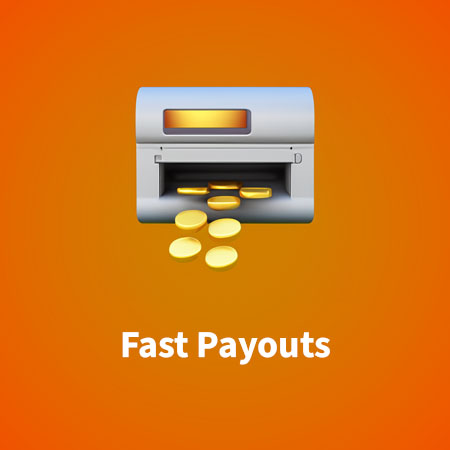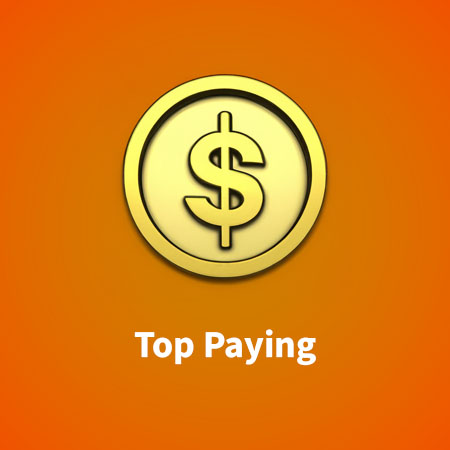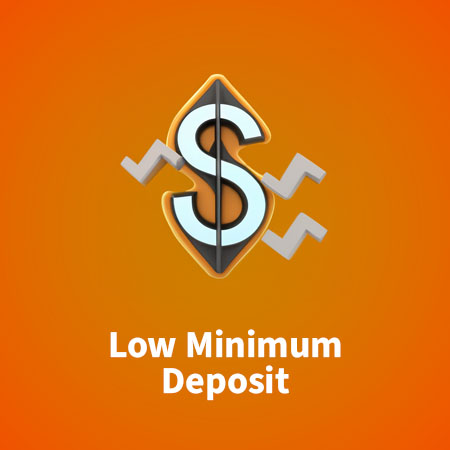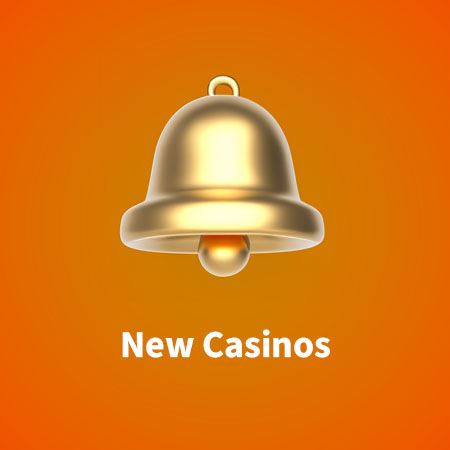At BestNewZealandCasinos.com, simply put our job is to find you the best online casino NZ. We have reviewed over 380 New Zealand online casinos and with over seven years experience, we are confident we will find your new online casino.
| Casino | Offer | Rating | Features | Visit |
|---|---|---|---|---|
1 
|
Up To $1000 + 500 Loyalty PointsTerms & Conditions Apply |
Read Review | Brand New Online Casino in New Zealand |
Play Now
|
2 
|
Up To $500 + 500 Bonus SpinsTerms & Conditions Apply |
Read Review | Massive Amount of Free Spins |
Play Now
|
3 
|
100% Up To $1000 + 200 Free SpinsTerms & Conditions Apply |
Read Review | Great Casino and Sportsbook |
Play Now
|
4 
|
Deposit NZ$10 Get 100 Free SpinsTerms & Conditions Apply |
Read Review | Sweet Bonanza Free Spins |
Play Now
|
5 
|
Bonus NZ$1000 + 100 Free SpinsTerms & Conditions Apply |
Read Review | Brand New NZ Online Casino 2024 |
Play Now
|
6 
|
100% Up To $1200 + 260 Free SpinsTerms & Conditions Apply |
Read Review | A Kiwi Favorite Online Casino |
Play Now
|
7 
|
Up To $2,500 + 300 Free SpinsTerms & Conditions Apply |
Read Review | Great Free Spins Welcome Bonus |
Play Now
|
8 
|
325% Match Bonus + 250 Free SpinsTerms & Conditions Apply |
Read Review | Massive Welcome Bonus on Offer |
Play Now
|
9 
|
Up To $1500 + 100 Free SpinsTerms & Conditions Apply |
Read Review | Massive Selection of Online Pokies |
Play Now
|
10 
|
Deposit $10 Play With $30Terms & Conditions Apply |
Read Review | Highly Trusted Online Casino |
Play Now
|
 Top 10 Online Casino Sites NZ
Top 10 Online Casino Sites NZ
We’ve already covered casinos that specialise in the following categories: top-paying, low deposit, fast payouts and best new casino – but we know that you love options! In this section, we take a closer look at the best real money online casinos NZ.
| Rank | Casino | Known For | Gambling License |
|---|---|---|---|
| #1 | BetVictor Casino | Great All Around Casino | GBGC/39576 |
| #2 | Spin Casino | Pokie Lovers Casino | MGA/B2C/145/2007 |
| #3 | Wiz Slots Casino | Great New Casino | GBGC/39576 |
| #4 | Lucky Nugget Casino | Low Deposit Bonuses | MGA/B2C/145/2007 |
| #5 | Christchurch Casino | New Zealand Casino | MGA/B2C/978/2022 |
Christchurch Casino – Fastest Growing New Online Casino NZ
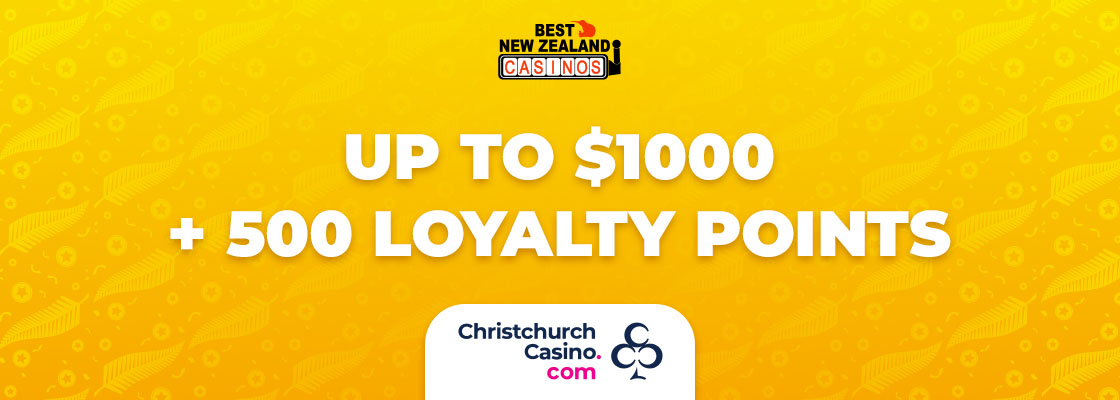
Christchurch Online Casino uses its impressive land-based facilities to cater to online players’ every preference and need. We found that its welcome package maximises the first deposit value by offering every new player a starting boost towards incredible loyalty rewards. We feel the success of this casino in New Zealand is its incredible daily promotions, diverse selection of payment methods, outstanding 24/7 support services, and impressive selection of games is quickly making it the best online casino in NZ. Christchurch online and mobile casino offers thousands of slots and various table games while presenting players with the best live dealer games in a safe, fair, and licensed environment, encouraging responsible gambling.
- Exclusive Player Club loyalty rewards
- Impressive welcome package
- Reasonable wagering requirements
Spin Casino – Top NZ Online Casino for Exciting Online Pokie Tournaments

Spin Casino is the ideal online casino NZ destination for Kiwis who enjoy an array of payment methods and a great variety of games available on a user-friendly interface. We tested out this online casino powerhouse and it revealed an extensive range of membership benefits. Some of the most important in our opinion are its reputation, its Malta Gaming Authority license, its focus on player fairness and safety, and the extensive VIP scheme. In addition, apart from the generous welcome bonus we also discovered a nicely varied array of free spins and other promotions with reasonable wagering requirements. The online casino also offers 24/7 customer support, and a dedicated mobile app, and accepts a minimum deposit of just NZ$1.
- Extensive variety of tournaments
- Excellent variety of live casino games by Evolution Gaming
- Outstanding range of convenient payment methods
Wiz Slots Casino – Top New Online Casino

New Zealand players are bound to appreciate Wiz Slots Casino, unquestionably one of the finest new online casinos in the country. We’re delighted about the straightforward sign-up procedure, which ensures a seamless experience from the start. In addition, welcome bonus choices guarantee an enjoyable journey regardless of personal preferences. Numerous secure payment methods enable swift deposit transactions, a fantastic game selection and outstanding customer support services, which also contribute to our high ranking. Wiz Slots Casino stands out as a fine choice in terms of the best NZ casinos.
- Designed specifically with mobile players in mind
- Welcome bonus on par with the best gambling sites NZ
- Best for live dealer games and online pokies
Lucky Nugget – The Best Low Deposit Casino Bonus

Lucky Nugget provides the ultimate online casino experience in New Zealand, set in a virtual frontier, boasting a wealth of captivating options to play online casino games. The exceptional $1 deposit offer and enticing $5 minimum deposit NZ online casino are particularly noteworthy, allowing players to enjoy the gaming treasures without hefty investments at one of the top casinos in New Zealand. What sets Lucky Nugget apart is its unwavering commitment to fair and responsible gaming, along with steadfast customer service, reliable banking options, and a continuous commitment to raising the bar. We feel confident in recommending Lucky Nugget Casino for a first-class experience in an environment where Kiwis can revel in the games with confidence and peace of mind.
- Best minimum deposit New Zealand online casino
- Excellent value for money minimum deposit bonuses and free spins
- One of the best New Zealand casino sites for fast payouts
BetVictor Casino – Best Real Money Casino in New Zealand
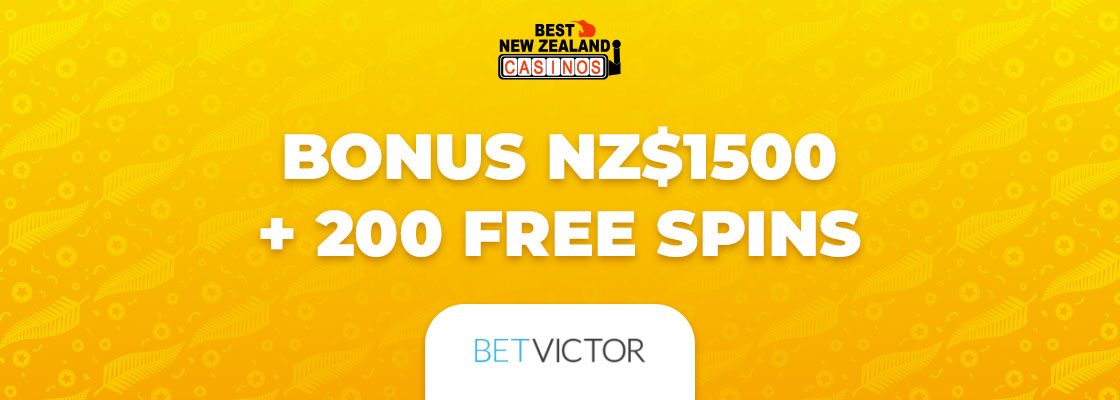
BetVictor is one of the best-known brands in the casino and sports betting arena, among the first to recognize the potential of online gambling and catering to mobile players. Expected to be impressed, the multi-licensed BetVictor still managed to fascinate us with its focus on security, responsible gambling, and an exciting variety of games available on a stylish, quick navigational design. The quality of its entertainment by premier software providers, and its vibrant and extensive range of live casino games. In our opinion, BetVictor is a solid NZ online casino choice for Kiwis who enjoy the best in terms of 24/7 customer support services, fast withdrawals, and an excellent welcome bonus in return for a modest first deposit.
- World Class live casino and mobile experience
- Splendid pokie and bingo experience
- Best NZ online casino for fast payment methods
Royal Vegas Casino – Best NZ Casino for Daily Bonuses

Royal Vegas Casino is a mobile-first playground for Kiwis who love the best online casino games that range from feature-rich to adventurous arcade pokies, the highest payout progressive jackpots, to the best traditional and modern live casino games. It is also one of the casino online sites we feel deserves a high rating for offering a safe and fair online experience certified by eCOGRA. Promoting a responsible gambling experience, this site also impressed us with its 24/7 live chat, a great variety of reliable payment options and fast withdrawals. In keeping with its promises to offer a bigger and better player experience, we discovered that Royal Vegas constantly adds new releases, tailors bonuses and uses the latest security technology to ensure the safety of players.
- New player-tailored bonuses daily
- eCOGRA certified as a fair and safe NZ online casino
- Generous welcome bonus including 2,500 loyalty points unlocked by first deposit
SkyCity Casino – Best Overall Casino Online NZ
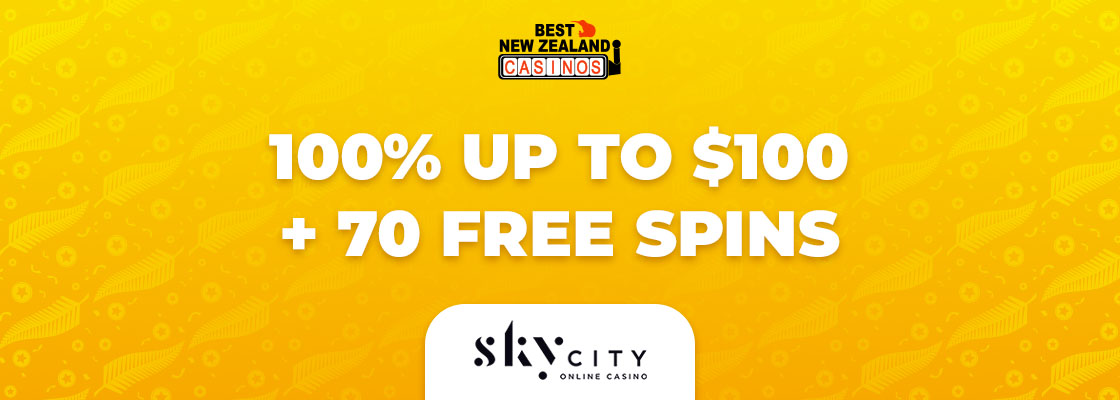
At first, we believed the main incentive to join SkyCity Online Casino was the fantastic assortment of over 1900 of players’ favourite casino games. We were astonished by this online casino’s ongoing dedication to ethics, player happiness, and straightforward promotional terms. Highlights that made a real impact during our rating of one of the best online casinos in NZ include wager-free rewards, no hidden conditions, and fast payment methods. As we see it, SkyCity offers a world-class online gaming experience with long-lasting effects thanks to extensive features encouraging responsible play, 24-hour customer service and world-class gaming pleasure in a safe, secure environment, enabling players to relax.
- Wager-free rewards without hidden conditions
- Unwavering commitment to integrity and player satisfaction
- Top online casino licensed by Malta Gaming Authority
7Bit Casino – Top NZ Online Crypto Casino
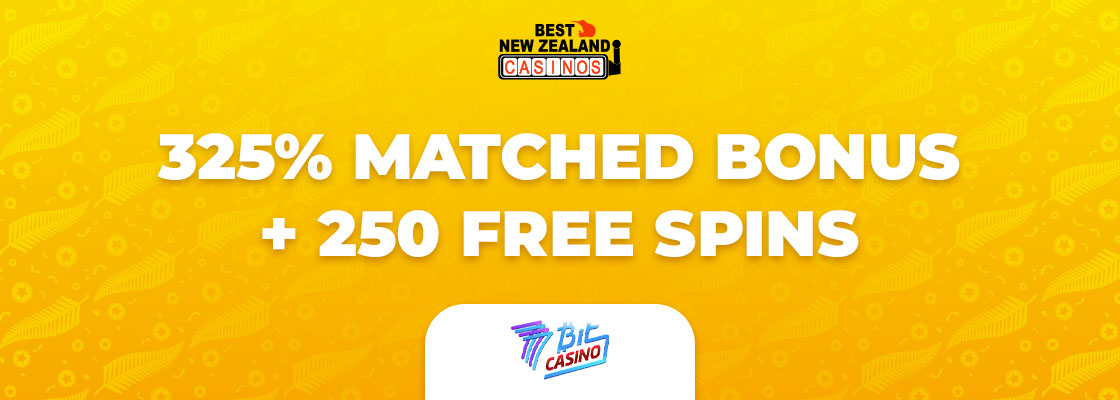
7Bit Casino is an online Bitcoin casino paradise with a generous welcome package available after registration. Membership unlocks an array of cashback bonuses, free spins and additional prizes from non-stop tournaments. Home to the richest variety of Bitcoin games and accepting a vast range of e-currencies, the casino won our favour with its incredible selection of well over 7,000 games. In the best New Zealand casinos section, the site impressed us with its 24/7 customer support, demo simulators for training, instant payouts and high level of security. It is also one of the New Zealand online casinos recommended for players who enjoy the best online pokies, live casino games, progressive jackpot slots and the convenience of playing on the go.
- Top online casino for gaming variety of over 7,000 titles
- Accepts a vast selection of e-currencies
- Instant VIP club membership after registration
Gaming Club Casino – Best Free Spins Casino NZ

Gaming Club Casino is the undisputed home of New Zealand’s highest-quality casino games. The stunning range is compatible with mobile devices, so whether you want to relax at home or travel, the most exciting opportunities to win NZ$ are only a click away! As far as we can tell, even If you had to play a different game every day of the year, you still would not reach the end of the gaming collection, and the number increases every month. Gaming Club Casino has offered NZ players an exclusive online experience and red-carpet rewards since 1994. As we see it, Gaming Club goes all out to ensure Kiwis enjoy fair gameplay, exceptional services, and prompt payouts within 48 hours.
- Established in 1994 to offer a luxurious mobile and online casino experience
- 100% Committed to fair play and player security
- Excellent mobile casino games
Betway Casino – Top Real Money Online Casino NZ

Betway Casino is in a league of its own in terms of live casinos, sports betting, casino games, and esports. It is one of the most popular NZ online casino sites for blockbuster branded online pokies and classic games with a modern twist. Famed for offering players peace of mind, Betway makes security and fairness a priority. The list of top reasons why the online casino real money NZ stands out and earns our high rating is certification by eCogra, a range of trustworthy banking methods that ensures convenient, safe, and fast transactions. Betway is also one of the top NZ casino sites, partnering with leading developers to guarantee gaming quality and variety for all.
- Top eCOGRA-certified NZ online casino
- Licensed by the UK Gambling Commission and Malta Gaming Authority
- Tops for Vegas Style Slots
| 🏆 Top Online Casinos | 90+ |
|---|---|
| 💵 Minimum Depsoit | NZ$1 |
| 💰 Biggest Casino Bonus | NZ$2,000 |
| 💲 Best NZ$ Casino | SkyCity Online Casino |
| ⚖️ Gambling Licenses | NZGC, UKGC, GRA, MGA |
| 🎰 Popular Online Pokies | Mega Moolah, Buffalo, Starburst |
| 📱 Best Casino App | Jackpot City Casino |
 How We Review the Top NZ Casinos Online
How We Review the Top NZ Casinos Online
Our online casino reviews condense all information into a fact-based guide for online players. First, we lose ourselves in the experience. Reviewing a real money casino means knowing everything about it and experiencing it. In keeping emotion out of it, we give precise, concise, and constructive feedback while keeping in mind how every bit of information will benefit our players. We love a deep dive into the top online casinos of the online gambling industry and bringing you the best of the best.
Licensing
Licensing ensures the online casino meets the standards and pre-set guidelines set by the licensee to ensure that online gambling is conducted fairly, safely, and securely. Licensing safeguards players, prevents underage gambling, and prohibits crime while setting strict limits to encourage responsible gambling. We favour NZ casinos licensed by the UK Gambling Commission and the Malta Gaming Authority and promote casinos that meet and exceed requirements.
Design
The theme or design of a real money online casino site creates the first impression, while a fully responsive layout is crucial to the longevity of online and mobile players. Simplicity and well-structured website layouts ensure instant access to player favourites, leaving NZ online casino players more time to relax and enjoy playing.
Variety of Online Casino Games in NZ
New Zealand online casino sites are connoisseurs, catering to Kiwis’ every liking in table games, card games, slots, live dealer games, and progressive jackpots. Gambling sites go into great detail to cater to new, casual, and experienced players according to volatility, RTP, and payouts.
Software providers
Partnerships between real money casinos and premier software providers ensure an award-winning real money casino games experience for mobile and desktop players at the top NZ casino sites.
Great welcome bonuses
The real value of casino bonuses in NZ depends on wagering requirements, the period to complete all bonus requirements, game contributions, and maximum withdrawal caps. Equally important is what is needed in the first place to claim the bonus.
Mobile compatibility
Mobile compatibility tests are critical across all devices to ensure players have access to an incredible gaming selection, top bonuses, quick and easy banking options, and customer support services on the go.

Common payment methods accepted
Trustworthy and reliable payment methods accepting all currencies are the magic glue that connects superb bonuses and exciting real-money online gaming.
Customer support
The best real money casinos prioritise outstanding customer support, as this is a direct connection between the casino and players. Top-notch customer services inspire player loyalty, as this is a direct connection between the casino and players. Top-notch customer services inspire player loyalty, enjoyment, and trust.
Casino reputation
A good reputation is extremely important in attracting potential players since it indicates honesty and trustworthiness.
Payout rate (RTP)
The payout rate at a reputable NZ online casino gives players a percentage-based indication of how much the casino is returning to players versus what it keeps.
Privacy
One of the main reasons why New Zealand players prefer to play at top nz online casinos is that member privacy is taken seriously, and reputable online casino sites also offer honest payouts and fair games.
Our Experience
Great online experiences at the best NZ casino sites start with easy navigation, leading to great games, instant deposits, fast payouts, great bonus value, and excellent customer service.
 Looking for a Fast Payout Casino or Minimum Deposit Casinos?
Looking for a Fast Payout Casino or Minimum Deposit Casinos?
Looking for something in particular, such as lightning-fast payouts so that you can cash out your wins in no time? Or perhaps you’re tired of the same old and want to try out one of the newer real money casinos on the block. Whatever it is you have in mind, we’ll find the perfect match. Click on any of the below categories to discover the casino(s) that’s right for you:
Fast Payouts
Withdraw your wins instantly at these fast-payout casinos. Your withdrawals are processed with lightning speed and with an array of top-class payment methods to choose from. See our top pick for a fast payout casino here.
Top Paying
Rake in those wins, and withdraw to your heart’s content with fewer limits imposed on the amount you can cash out at these top-paying casinos. See the top paying casino here.
Low Minimum Deposit
These casinos offer superb low deposit bonuses. With bonuses requiring a minimum deposit as low as NZ$1 – you’d be mad to miss out on such sensational offers. See our pick for the best low deposit casino here.
New Casinos
They may be the new kids on the block, but don’t let that fool you. These casinos have a point to prove, and they put their money where their mouth is with innovative features, game-changing bonuses, and exceptional game variety – every kiwi’s gaming dream. Find the best new casino here.
 Types of Online Casino Bonuses
Types of Online Casino Bonuses
Top online real money casinos in New Zealand offer several bonuses to cater to all player preferences and suitability for different game types. The key to a great bonus experience is knowing how to best apply to maximise returns, while it is vital to remember terms and conditions apply.
Reload Bonuses
Reload bonuses increase deposits made by members and can be available as free spins on online pokies or a percentage match bonus. It differs from one NZ online casino to the next. A reload bonus can apply to all deposits or deposits made on specific days. It is a fantastic way to increase your bankroll, prolong play, get more free spins and increase winning possibilities.
Cashback Bonuses
A hot favourite for players who enjoy the best live casino games, cashback bonuses give players back a percentage of their losses. The great benefit is that cashback bonuses require no or very low wagering. Cashback bonuses are a second chance to win back previous losses.
Free Spins Bonuses
One of the most favoured bonuses at premier real money NZ online casinos, free spins on popular online pokies ensure loads of fun and winning opportunities. Only the winnings are subject to wagering requirements, while players get free spins on new and exciting games by the top software developers without touching their bankroll.

No Deposit Bonuses
A unique bonus that enables players at NZ casinos to experience real money online casino games without the risk of depositing money. No deposit bonuses can present players with a small bonus amount or free spins on pre-selected online pokies essentially getting free casino games to play. The great benefit is that Kiwis could withdraw real money once wagering requirements are completed.
Matched Deposit Bonuses
Matched deposit bonuses at top NZ casino sites match the deposit made via a specified percentage. For example, a 100% match bonus doubles the amount players deposit. The highest match percentage bonuses are part of welcome packages and can double one or multiple deposits up to a maximum bonus amount.
Low Wagering Bonuses
Low-wagering bonuses are online casino deposit bonuses that make it easier for players to reach bonus requirements while adding significantly to the value of the bonus. Low wagering is the most favoured by experienced players aiming to maximise bonus winnings. At most online casinos NZ, the wagering requirements can be anything from 20 to 50 times the amount so keeping this low is essential.
No Wagering Bonuses
No wagering bonuses are super exciting bonuses or free spins at New Zealand online casinos free from wagering requirements. All winnings are paid in real money, meaning players get to keep what they win without the worry about meeting the high wagering requirements. In short, the most loved bonus at NZ online casino sites is the no-wagering bonus.
 Pros and Cons of New Zealand Online Casinos
Pros and Cons of New Zealand Online Casinos
The advantages versus the disadvantages that NZ players must consider carefully when making a sensible decision. Measuring the favourable against the unfavourable factors with supporting information is an invaluable tool for seeing both the costs and benefits of joining a casino online in New Zealand.
 Benefits of Real Money Online Casinos
Benefits of Real Money Online Casinos
Bonuses for New Customers
Bonuses are attractive ways of doubling your money immediately when you accept a 100% bonus at the top New Zealand online casinos. Real money casinos use various bonus structures to provide a good start and maximise your bankroll, including free spins, cashback, or a match percentage-based bonus. All bonuses increase the start-up bankroll considerably to ensure more funds are available to explore the real money casino games and other services at the online casino.
Choice of gambling options
The best NZ real money casinos are mindful of player budgets and offer low minimum deposit bonuses that cater to budgetary needs. Kiwis can make a $5 minimum deposit or spend $50 to join the same online casino, claim the casino bonus, and enjoy the same choice in games, services, and upcoming promotions.
Generous casino welcome bonuses
Jackpot City Casino is the best online casino NZ that pulls out all the stops to accommodate all budgets, regardless of how limited or lavish. The current $1 minimum deposit play with 80 bonus spins registration offer, a great example of budget flexibility, is the first deposit bonus in the five-level welcome package.
The second, third, and fourth $5 minimum deposits unlock 50, 75, and 90 bonus spins, respectively. The fifth 100% bonus depends on the amount NZ casino players decide to deposit. The minimum deposit is $5, and claiming the maximum of $400 will require a deposit equal to $400.
Gambling on the GO
Mobile gaming makes player locations irrelevant in their playing decisions, thus helping Kiwis to play online casino games of their choice wherever they are provided they have an internet connection. Convenience and freedom become one by allowing players to enjoy online casino mobile gaming while commuting to and from work or while watching TV with the family.
Trust and security
Online gambling sites use the same technology as major financial institutions to ensure the highest level of security in online payment processing and data exchanges. SSL encryption provides authentication, integrity, and confidentiality making it safer than ever to play at an online casino real money NZ.

 Drawbacks to Real Money Online Casinos
Drawbacks to Real Money Online Casinos
Speed of withdrawals
In the best New Zealand online casino sites, players enjoy access to several instant deposit methods, but unfortunately, not all withdrawals are instant. Bank and card payments may take several days. To avoid delay, make sure to play at fast-payout casinos.
Human Interaction
Many years of studying player requirements and behaviour have been beneficial to online casinos in finding innovative ways to keep players captivated. Although the lack of interaction remains unless players play live dealer casino games, online casino gaming can be far removed from the experience at land-based casinos.
Currency Options
Not all popular online casinos accept multiple currencies, including NZ$, which results in additional currency conversion costs. Give those a miss and play only at the best online casino that gladly accepts New Zealand dollars.
 6 Steps To Picking The Best Online Casino
6 Steps To Picking The Best Online Casino
-
About 5 minutes
-
Laptop/Mobile
-
Internet connection
-
18+ In age

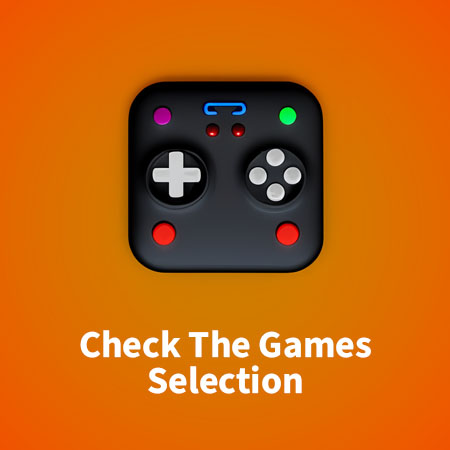
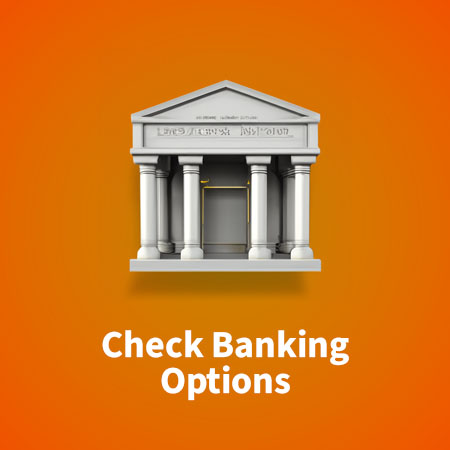



 Best Online Casino Software Providers
Best Online Casino Software Providers
The success of an online casino depends on how many players enjoy the games, which makes the role of software developers pivotal in designing high-quality games that massively impact players’ gaming experience, whether players enjoy online casino games, pokies, live casino games, or video poker games. The best online casinos are in partnership with the top online game developers.
Microgaming
Microgaming is one of the most experienced online developers and a founding member of eCOGRA. Licensed by all leading gambling authorities, including the UK Gambling Commission and the Malta Gaming Authority, the award-winning casino games portfolio of over 800 games includes the Mega Moolah and other great real money casino games. In 2022, Microgaming agreed to the sale of its extensive catalogue to Games Global Limited.
Playtech
Established in 1999, Playtech is a household name amount online casino NZ sites and the winner of the 2020 Casino Platform Provider of the Year and many other prestigious awards. Playtech launched its iPoker network in 2004, traded on the London Stock Exchange since 2006, and open the largest Latvia live dealer studio in 2017. Popular Playtech games include Wheels of Flame, Toots Froots Gold Splash, plus Beach Life and Gladiator progressive jackpots.
NetEnt
Known and loved by all players at the best NZ online casino sites, NetEnt is a premier online game supplier that has won many awards for the best games. Acquired in 2020 by Evolution Gaming, NetEnt offers exceptional games such as Gonzo’s Quest, Starburst, Mega Fortune, Hall of Gods and Divine Fortune known for exceptional graphics and brilliant bonus features.
Play’N Go
Established in 1997 and entering the online casino gaming arena in 2004, Play’n Go is renowned for top-quality games. The diverse Play’n Go portfolio features over 280 slots, including the world’s favourite, Rich Wilde and the Book of Dead. Games by the developer include bingo games, table games and video slots, and grid slots. The most popular titles at NZ casinos include Reactions, Gates of Troy, Merlin’s Grimoire, and Cash of Command.

IGT
IGT provides both the online and land-based markets with superior-quality games and won the Best User Mobile Experience award in 2016. The top online casino slots by IGT include Cleopatra, Ghostbusters Plus, Da Vinci Diamonds, and Fantastic Fireworks. The best-known progressive jackpots by the highly experienced developer include Siberian Storm and Cleopatra Mega Jackpots.
Yggdrasil Gaming
Founded in 2013 to offer online players world-class entertainment. Yggdrasil Gaming is a multi-award winner known for the innovative Gigablox, Splitz, Doublemax and Duomax mechanics. Top infinity reel games include Age of the Beasts and 10x Rewind, while Devour the Week and Cazino Zeppelin Reloaded are super high volatility titles. Yggdrasil Gaming released the first 3D dealer game, called Sonya Blackjack, in 2018.
Evolution Gaming
Evolution Gaming is the award-winning ruler of online casino live dealer games across the globe and in New Zealand online casinos. State-of-the-art studios broadcast live-streamed games that take player experiences to a new level via different camera angles. Highly popular live casino games hosted by the best real dealers include Live Lightning Roulette, Live Ultimate Texas Hold’Em, Live Peek Baccarat, and Monopoly Live.
Pragmatic Play
Since 2015, Pragmatic Play has released over 250 highly-popular games, including slots, bingo, virtual sports, sports book, and live casino games available at the best online casinos. The winner of awards, including Innovation in Mobile and EGR Slot Provision, provides mobile and online players with an immersive and unique experience. Top live casino games include Boom City and Mega Roulette, while popular slots include The Dog House and Wild West Duels.
 Safe Online Gambling in New Zealand
Safe Online Gambling in New Zealand
Safe online gambling at the most popular online casinos starts by checking all the important factors that directly influence your safety, security, and privacy while ensuring a fair experience at all times. We highlight everything below all the factors vital in long-term gaming enjoyment at the top NZ casinos.
Are online casinos legal in New Zealand?
Yes! It is legal for NZ casino players to gamble online, as long as the casino itself is operated outside of New Zealand.[1]
“The prohibition is on remote interactive gambling in New Zealand and therefore does not prohibit gambling conducted overseas. For example, it is not illegal for someone in New Zealand to participate in gambling over the Internet if that website is based overseas.”
Te Tari Taiwhenua | Department of Internal Affairs
Building a safe, prosperous and respected nation
Read more about New Zealand’s online casino gambling laws in this article.
Blacklisted NZ casino sites
Several of these unsafe casinos are promoted in NZ, which is why we have listed them here so you can avoid them. We do our utmost to ensure that players are informed and protected.
Kingdom Casino– Complaints regarding the ability to withdraw funds.Gold Gate Casino– Players unable to withdraw winnings.Atlantic Vegas Casino– Illegitimate licensing and dubious business practices.21 Dukes Casino – Players unable to withdraw winnings.Cosmo Casino– Deceptive Facebook advertising.

Do you have to pay tax on winnings?
No – kiwis do not get taxed on casino winnings in New Zealand. However, if you are a professional casino player, or if you use your winnings to make a profit, these are taxable.[2]
Gameplay Fairness
The best NZ casino sites offer games by leading software developers that are fair and RNG-minded. Highly trustworthy casinos make game RTP reports for public view, while licensed casino offer games tested and certified by gambling authority-approved testing laboratories.
Responsible Gambling
If you’re concerned that you may have an unhealthy relationship with gambling, there are an array of resources at your disposal to ensure that you get the support you need. You can take the self-assessment quiz here.
If you’d like tips on how to gamble responsibly, as well as a comprehensive list of resources for problem gamblers, check out our responsible gambling guide.
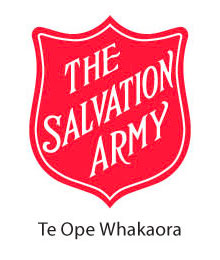
Get support from the NZ Salvation Army: If you have a gambling problem take the first step now – call the Salvation Army’s helpline.
The Best Land-Based Casinos in New Zealand
Offline casinos offer a great socializing in-person entertainment experience, while online casinos deliver thousands of games directly to your desktop or mobile devices to ensure convenient 24/7 gaming enjoyment. Offline casinos reward with free drinks and live entertainment, and online casinos offer the best payouts and the best-valued non-stop bonuses and promotions.

Grand Casino Dunedin
Grand Casino Dunedin hosts more than 150 electronic game machines and blackjack, roulette, baccarat and poker table games. Visitors to the Grand Bar and Restaurant can look forward to a feast of NZ cuisine.
Address: 118 High Street, Central Dunedin, New Zealand
Phone: +64 3 3477 4545
Opening Hours: 12 pm to 2 am

SkyCity Casino Auckland
A magnificent land-based casino experience awaits at the Auckland SkyCity Casino featuring more than 2,100 game machines plus over 150 table games. The incredible venue offers VIP gaming, great restaurants and bars.
Address: 72 Victoria Street West, Auckland, New Zealand
Phone: +64 9 363 6000
Opening Hours: 24 hours

SkyCity Casino Hamilton
Excellent for events, conferences, great food and socializing, SkyCity Casino in Hamilton offers access to over 330 pokie and other gaming machines and 23 table games.
Address: 346 Victoria Street, Hamilton, New Zealand
Phone: +64 7 834 4900
Opening Hours: 10 am to 4 am
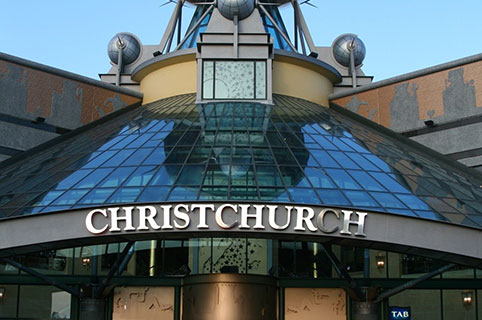
Christchurch Casino
Known as New Zealand’s most legendary casino, the Christchurch casino experience includes. access to 32 table games and over 450 pokie machines. Players can enjoy great food at over three restaurants and bars.
Address: 30 Victoria Street, Christchurch Central, New Zealand
Phone: +64 3 3365 9999
Opening Hours: 12 pm to 2 am
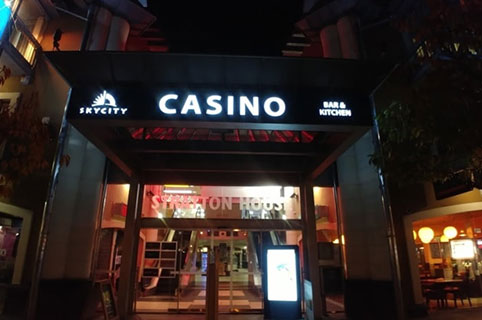
SkyCity Wharf Casino
One of the premier SkyCity Entertainment Ltd casinos offering visitors a great experience on more than 75 gaming machines and eight table games plus four VIP tables. Players can enjoy refreshing drinks at the bar and enjoy dining at restaurants.
Address: Stratton House Level 2/16 to 24 Beach Street, Queenstown, New Zealand
Phone: +64 3 441 0400
Opening Hours: 11 am to 12 pm

SkyCity Casino Queenstown
SkyCity Casino Queenstown offers access to great bar atmospheres, and excellent dining and players can enjoy gameplay on over 86 gaming machines and several table games.
Address: Level 2, Stratton House, 16 to 24 Beach Street, Queenstown
Phone: +64 3 441 0400
Opening Hours: 11 am to 12 am
 About us
About us
Established in 2007, Best NZ Casinos has cemented itself as an industry leader, with an unwavering dedication to providing top-class reviews, measured insights and expert advice of the utmost excellent quality. Spearheaded by revered casino VIP host, Andrew Stone, (@realandrewstone), Best New Zealand Casinos is now a premier online casino rating service, with a dedicated team of industry experts who tirelessly test every new brand so that you have only the best selection to choose from. Our work has been featured in respected publications such as Luxury Lifestyle Magazine, and CitizenJournal along with our survey on New Zealand player’s behaviour being published on PR Newswire, Seeking Alpha and many more.

We test the performance of online casinos using:
• 4G and 5G mobile data and fibre internet connections
• All types of mobile devices and desktops
• All types of banking methods, especially credit/debit cards (the most popular choice for Kiwis)
Click here to find out more about us here at BestNewZealandCasinos.com.
 FAQs about Online Casinos in NZ
FAQs about Online Casinos in NZ
We answer those questions players ask the most, simply and effectively.
💲 Can I use New Zealand dollars as a currency at the casinos?
Yes. The best New Zealand casinos accept NZ$ as a payment method. Many will also offer bonuses and minimum deposit values in NZ dollars.
Click here for a guide to the best NZ dollar online casinos.
❓ Are online casinos legal in New Zealand?
Yes, online casinos are legal in New Zealand. The law states that New Zealand residents are perfectly within their rights to play at online casinos, as long as the site operates outside the country.
🙋♀️ How do I choose the best New Zealand casino?
We’ve done all of the hard work for you – click here for an overview of the Best NZ casinos. To recap, look for a casino that:
- Is safe (Licenced and secure)
- Offers your preferred bonus type
- Supports your preferred banking method
- Has excellent customer support
✔️ What is the most legit online casino in NZ?
All of the casinos we feature on this site are fully licenced and regulated – it’s an absolute non-negotiable. One of these legit online casinos that we recommend NZ players give a try is SkyCity Online, who are a part of locally-based SkyCity Entertainment Group.
🏆 What is the best online casino for real money?
All of the online casinos on our site accept and pay out real money. The best NZ online casino for real money is Vegas Lounge.
💵 Can you win real money at online casinos?
Yes. A good tip is to always verify the Return to Player (RTP) percentages as this indicates how well paying a pokie or casino game is. High-paying games have a good RTP, usually over 95%.
| American Blackjack | 99,5% |
|---|---|
| European Baccarat | 98,9% |
| Poker – Texas Hold’em | 98,6% |
| Slots – 8 Lucky Charms | 97,4% |
| European Roulette | 97,3% |
Click here to see the expanded list of the highest paying casino games.
🔑 Which is The Safest Online Casino?
The safest online casino for Kiwis is Dunder Casino. They are licenced by the Malta Gaming Authority.
⚖️ Can online casinos be rigged?
Yes, but it’s not likely. If you’re playing at an online casino without a license or without Random Number Generators built into the games, then there’s a chance the casino could be rigged. Avoid that by only playing at licensed and legit NZ Casinos. To verify that a casino offers only fair casino games, the games must:
- Use RNGs
- Produce audited results to confirm the integrity and fairness of their games
Affiliate Disclosure: At BestNewZealandCasinos.com, we are committed to providing transparent and unbiased information about all online casinos available in New Zealand. Some of the links on this site are affiliate links, which means if you follow a link from our site and make a deposit at an online casino, at no extra cost to you, we may receive a commission directly from the casino. This has no bearing on the outcome of our extensive online casino review process, as we remain impartial and follow our How We Rate guidelines to ensure we can stand behind any online casino we offer to our readers.
 References
References
- Prohibited Gambling – dia.govt.nz
- Ministry of Social Development: Lottery prize money or gambling winnings – Work and Income
- New Zealand Legislation – Gambling Act 2003
 Latest Casino News
Latest Casino News

Fast Withdrawals at SkyCity Online Casino
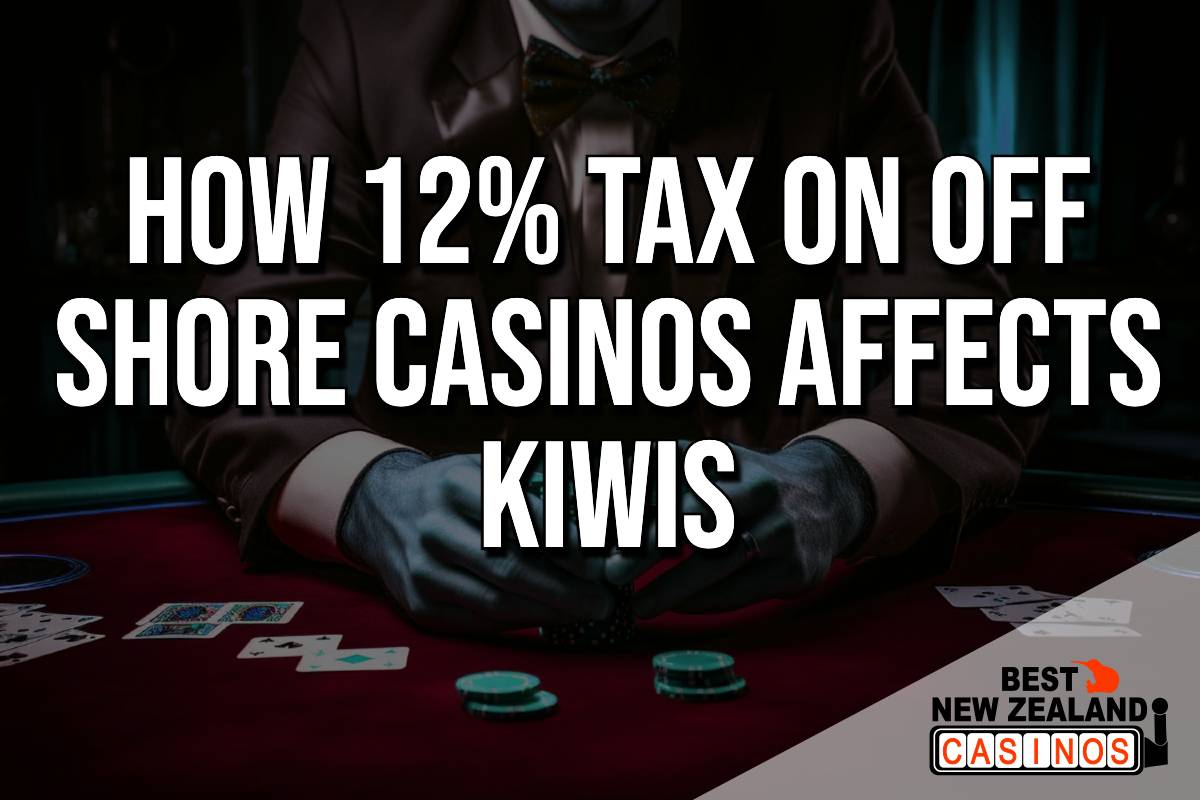
New 12% Tax & Regulation on Offshore Casinos and its Impact on NZ Gamblers

Experience Magic: Wiz Slots Casino 300 Free Spins for $10
